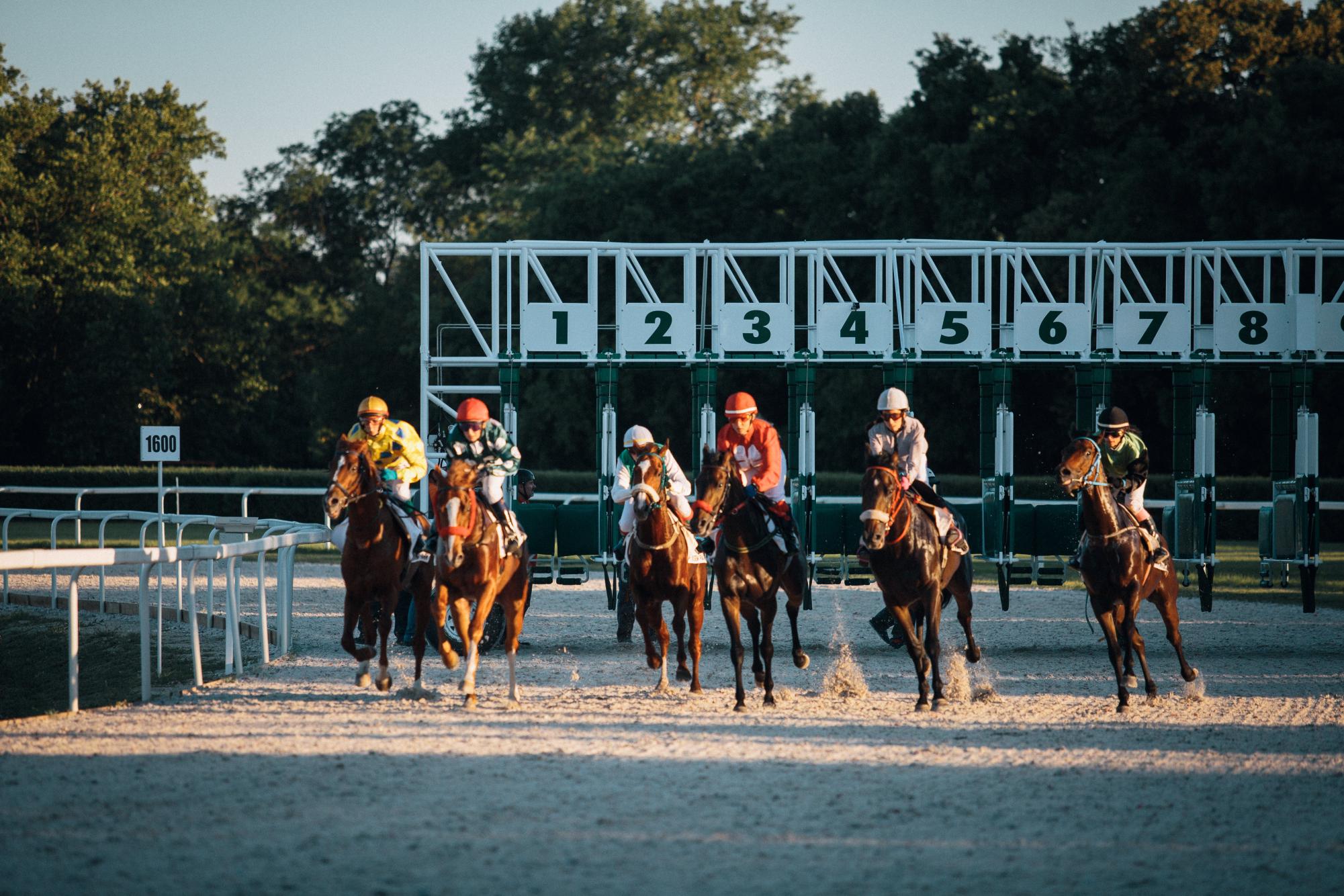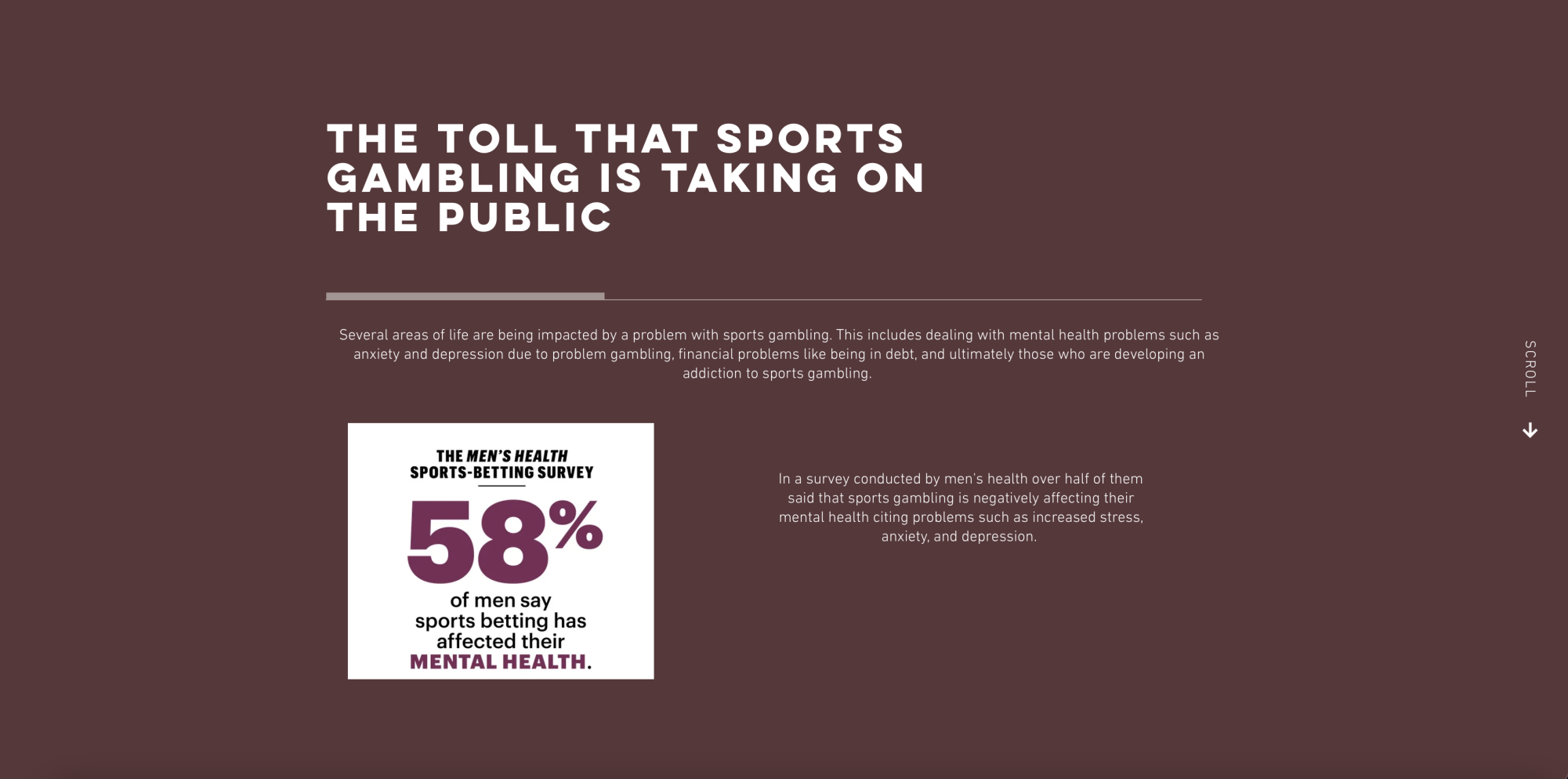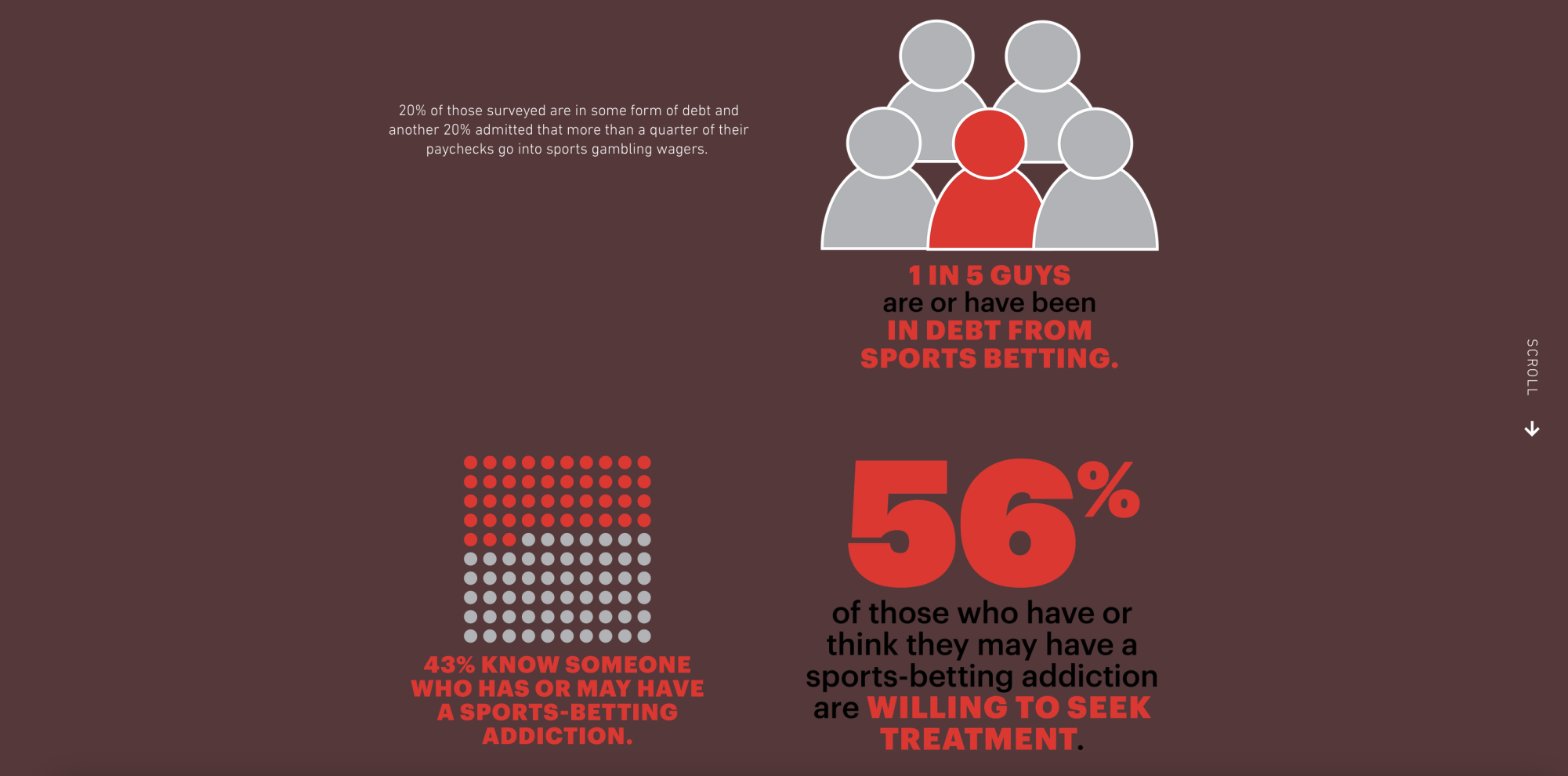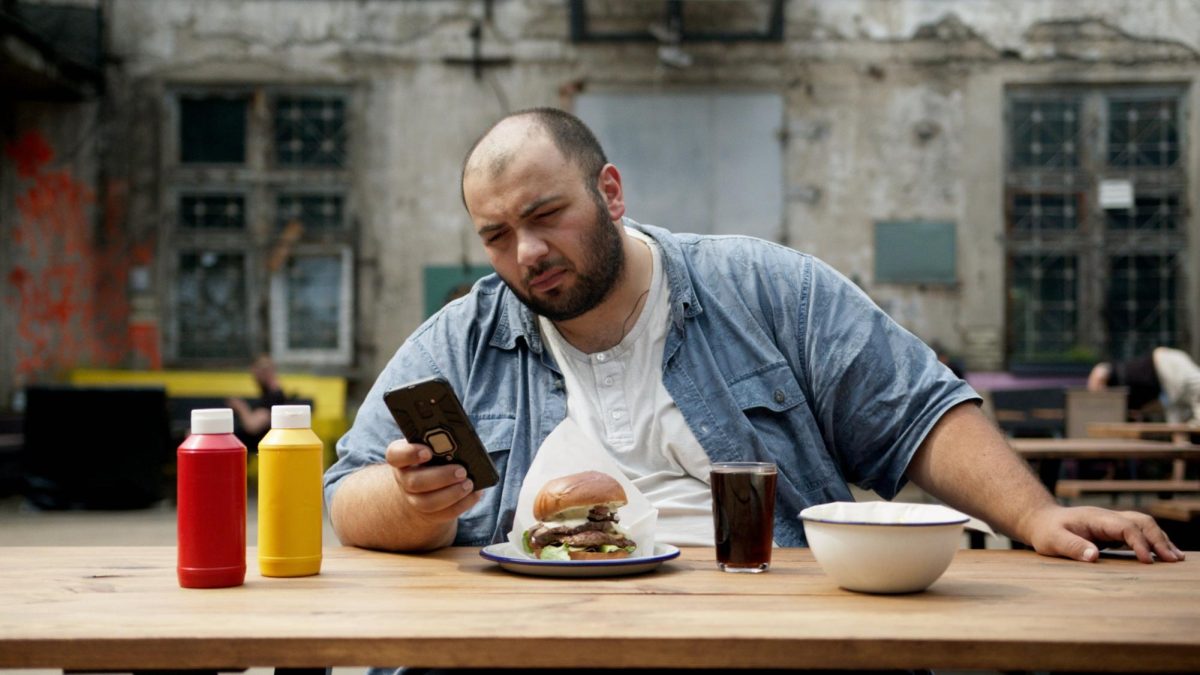How sports gambling presence through social media has impacted our society

Sports gambling presence through social media has begun to reach extreme heights of popularity and its effects on society are just starting to take shape. This research paper addresses three questions as to why this is happening. First it to understand what exactly it means to gamble on sports, how a certain social media is helping sports gambling to into a normal activity and the negative impacts this is causing to society. The questions have guided the project and led to the development of a website to showcase this issue. The findings tell us that Twitter is a popular platform for both sports gambling companies and sports gamblers to interact and create all types of gambling content. This has led to an increase in problem gambling which comes with mental health and financial issues that have yet to be recognized properly.
Gambling addiction should not be taken lightly and with the introduction of sports gambling to the United States it is becoming more prevalent and overshadowed. Sports gambling has only been legalized here in America since 2018 and has only been adopted by law into 35 states. Since it used to be illegal the perception of sports gambling can be divided. According to a study done by the Pew research center the divide comes with certain age demographics, as 47% of people who view gambling as negative for society are over the age of 50 while only 27% of those under 50 consider it to be bad for society. Certain factors such as the promotion of sports gambling on social media play a deciding role in why younger generations do not view it so negatively. Not only has gambling promotion increased but so has the frequency of social media use. With more time being spent on these platforms regulations of certain industries have fallen behind. Social media addiction is another topic but is potentially adding fuel to the fire when it comes to sports gambling. You can’t help but see promotions for sports gambling while on social media sites especially if your feed is already geared towards sports. Social media platforms foster the fear of missing out (FOMO) and the gambling industry is taking advantage of that.
There is knowledge missing from this area of research because sports gambling in the grand scheme of things is relatively new. It is easy to understand on the surface how promotion of sports gambling can lead to a positive view of it but is more ambiguous when you dive into social media’s role. I think that certain social medias such Twitter offer more than just promotion of gambling but the opportunity to create gambling communities. It expands upon promotion and turns into more of a hobby that seems inviting to be a part of. We should care about this because there are potential harms that exist with gambling such as addiction. Also, it is affecting our generation the most and since it is still young the long-lasting effects are still unclear to us.
To figure out how sports gambling presence through social media has impacted our society we would have to identify which social media sites have aided these impacts, and the impacts effects on the public. The remainder of this paper will 1) cover the background of sports gambling, 2) explain why twitter or “X” is popular among both gambling sites and communities, 3) the negative impacts that gambling addiction will have on society.

Sports gambling simplified
Sports gambling is the activity of predicting sports results and placing a wager on the outcomes of games. Sports gamblers place the wager through a sportsbook who decides what the odds are for each game. With the legalization of gambling, sportsbooks from around the world have begun creating mobile sportsbook apps. With the click of a button, you can download the app and deposit money into it. Essentially you have a casino open on your phone all day. While using the app the creators of these sportsbooks create what are called “odds lines” for sporting events. This includes the money line (choosing which team will win), total (how many points, runs, goals will be scored during the game), the spread (choosing which team will win by a certain number of points) as well as the ability to bet on individual player props who will participate in the game. The sportsbooks run the game through a simulator using previous data from the teams to determine the odds line for all the possible bets. The odds line determines how much you can win from placing a wager. For example, if there was a game between the Mets and Yankees with the Yankees odds line being at -150 to win that means you would need to bet $150 dollars to win back $100.
RQ1: What does it mean to sports gamble online?
Twitter as an affective space for promotion and community engagement
Firstly, twitter is a popular social media platform, and its versatility helps make it a great space for advertisers. The features that twitter has, allows for a wider range of promotion for sports gambling companies. These features include sponsored post ability, brand collaborations, videos/images, threads, polls, and a feature for audio called twitter spaces. There is data collected by business X that helps showcase how interactive twitter has been with sports gamblers. They say that “Seven out of every 10 sports bettors are on Twitter, and 33% of bettors who rely on Twitter for betting information say they wouldn’t make as many wagers if it weren’t for Twitter. Sports bettors who use Twitter spend 15% more on bets annually compared to sports bettors from other platforms. And 62% of bettors on Twitter place wagers weekly, which is more frequent than sports bettors on other platforms. ” (Epstein, 2023) This helps give insight into how interactive twitter has been for sports gamblers and how it is increasing the likelihood to continue to gamble.
Another reason other than promotion from these gambling advertisers has been the amount of user generated content. As talked about before, the versatility of tools on twitter allows for communities to form. There are tons of twitter accounts dedicated to posting their best bets of the day to showcase their following. These posts are organic and help spread the normalcy of sports gambling. These posts come from peers, influencers, topic experts that have no ties to these gambling companies yet at the same time are basically promoting them for free and it’s affecting our perception of a potentially dangerous vice in gambling.
RQ2: Why has twitter been an effective space for sports gambling?
The toll that sports gambling is taking on the public
There are multiple impacts from sports gambling that can negatively affect our society. This includes things like debt, mental health, and addiction. Online gambling is becoming responsible for some of these impacts according to a study conducted by the National Library of Medicine they say “In the present study, online casino stands out as being closely related to higher rates of problem gambling and over-indebtedness. The unadjusted percentage who fulfilled either problem gambling or moderate-risk gambling was more than three times higher in recent online casino gamblers than in those neither online casino nor sports live betting during the past month.” (Håkansson A, Widinghoff C, 2020) Ther aren’t definitive answers just yet but speculations to why this may be the case is just how big the online presence of gambling books have become.
Regulations need to be updated to help prevent these effects from spiraling into a health crisis. According to a survey done by Men’s health “1 in 5 bettors have gone into debt caused by sports betting, 58% of those surveyed say that it has taken a toll on their mental health citing things such as increased depression, and anxiety, and 43% say they know someone who has or may have a sports betting addiction.”(Epstein, 2023) These numbers are concerningly high and feel like they are over-matched when compared to the size of this gambling industry. More resources need to be dedicated to those who are affected and will likely be affected in the coming years.
RQ3: What negative impacts does sports gambling have on society?

The design of my project will be a website. The aim of the design is to inform the audience about how online sports gambling works, describe how gambling companies are marketing their product through social media, and the potential harm that it can cause to society. It will also feature resources they can reach out to if they are or someone, they know may be affected by a gambling problem.
The website will be effective in presenting my research questions in order that the audience will gain the most insight from. The website helps address sports gambling companies marketing tactics and brings awareness to the audience to help identify them and proposes solutions to those who may need help.
My website will contain sections that layout my research questions. Each one will include either a video or an image to further elaborate on the question. The first will cover the message design behind sports gambling advertisements. The second section will talk about how social media, specifically twitter, has played a role in the evolution of sports gambling. There will be images in this section to highlight how twitter is creating organic marketing for sports gambling and communities of sports gamblers. Then a section to explain the dangers of problem gambling and resources that can help those who are struggling with a problem. Lastly a quiz section that will ask questions pertaining to key statistics of sports gambling. For example, how much money is sports gambling generating, what sports are being gambled on, what areas of life does problem gambling affect, who is being the most affected by these problems? The idea behind this is to keep the audience engaged and open their eyes to how harmful this industry is.
There are a couple different storytelling strategies that will help my website. First, the project will emphasize the importance of media literacy. The reason being is that sports gambling companies marketing strategies are designed to get you on the hook. They do so by creating fear of loss with limited time promotions, they also use gain framing by including deposit match, meaning if you deposit a certain amount, they will match that same amount, so you are getting extra money to use. Also, social media like twitter play a role in normalizing sports gambling and unintentionally help promote it. The project aims to tell the audience how to detect these strategies and become more media literate in the landscape of online sports gambling. The overall theme of the storytelling will be like a campaign. It’s important because the rate at which the sports gambling industry has taken off has far surpassed the amount of attention for the problems it may cause, and the resources needed to help.
The program that I would like to work with for this project would be the National Council on Problem Gambling. They have created a phone hotline that can be reached at 1-800- Gambler. They help connect those who struggle with a gambling problem with local resources that could provide help. Their mission is advocacy and preventative strategies to combat problem gambling. Collaborating with this program can help produce educational programs to inform those about the dangers of gambling before they even begin. As well as additional treatment program strategies for those who have already been affected by problem gambling. Gambling companies run advertisements all over the internet, television, and radio. In order to match their reach, we would have to produce similar advertisements to warn people of the risks they are taking by sports gambling. With the rate at which sports gambling is growing it seems that the dangers of it have become forgotten so its important for a program like this to keep up with its recognition because there will inevitably be those that need help.
Another organization that this project could partner with would be the Responsible Play organization. Compared to the other programs their mission accepts that sports gambling is here to stay so they focus their attention on tips that sports gamblers should follow while they gamble. This is important because sports gambling is relatively new and is not going anywhere. Taking this approach will help ease the risks of problem gambling. Messages like the one this organization creates help keep the public aware that sports gambling is supposed to be enjoyed responsibly.
This project is aimed to bring awareness to a quietly growing problem in our society. Sports gambling online will be explained, how its presence online has risen to this level of popularity, and why it is negatively impacting the public in areas such as health and finances.
Epstein, R. (n.d.). Survey: American men reveal sports betting habits in 2023 - men’s health. https://www.menshealth.com/trending-news/a44821918/mens-health-sports-betting-survey/
Gordon, R., Harada, T., Waitt, G., & Gurrieri, L. (2023). Reconceptualising risky and harmful consumption through molar and molecular lines: Mobile smartphone sports betting arrangements. Marketing Theory, 0(0). https://doi-org.proxy.library.stonybrook.edu/10.1177/14705931231202360
Gainsbury, S. M., Delfabbro, P., King, D. L., & Hing, N. (2015, February 3). An exploratory study of gambling operators’ use of social media and the latent messages conveyed - journal of gambling studies. SpringerLink. https://link.springer.com/article/10.1007/s10899-015-9525-2?sa_campaign=email%2Fevent%2FarticleAuthor%2FonlineFirst#citeas
Gramlich, J. (2022, September 14). As more states legalize the practice, 19% of U.S. adults say they have bet money on sports in the past year. Pew Research Center. https://www.pewresearch.org/short-reads/2022/09/14/as-more-states-legalize-the-practice-19-of-u-s-adults-say-they-have-bet-money-on-sports-in-the-past-year/
Håkansson, A., & Widinghoff, C. (2020). Over-Indebtedness and Problem Gambling in a General Population Sample of Online Gamblers. Frontiers in psychiatry, 11, 7. https://doi.org/10.3389/fpsyt.2020.00007
Hellman, Matilda, et al. “Being good while being bad: How does CSR-communication on the social media serve the gambling industry?” European Journal of Communication, 2022, p. 026732312211453, https://doi.org/10.1177/02673231221145363.
James , R., & Bradley, A. (n.d.). The use of social media in research on gambling: A systematic review. https://www.researchgate.net/publication/351491261_The_Use_of_Social_Media_in_Research_on_Gambling_a_Systematic_Review
Killick, E.A., Griffiths, M.D. Sports Betting Advertising: A Systematic Review of Content Analysis Studies. Int J Ment Health Addiction 21, 3076–3102 (2023). https://doi.org/10.1007/s11469-022-00775-4
Kleen, B. (2022, January 10). Where sports media is going in sports betting age. Global Sport Matters. https://globalsportmatters.com/business/2022/01/11/what-happens-sports-media-sports-betting/
Meyersohn, N. (2023, February 10). The Dark Side of the Sports Betting Boom | CNN business. CNN. https://www.cnn.com/2023/02/10/business/online-sports-gambling-addiction/index.html
Purdum, D. (n.d.). The rise of Gambling Twitter: Social Media and the popularity of sports betting. ESPN. https://www.espn.com/sports-betting/story/_/id/34539260/the-rise-gambling-twitter-new-social-media-data-shows-exploding-popularity-sports-betting
Rossi, Raffaello, et al. “‘get a £10 free bet every week!’—gambling advertising on Twitter: Volume, content, followers, engagement, and regulatory compliance.” Journal of Public Policy & Marketing, vol. 40, no. 4, 2021, pp. 487–504, https://doi.org/10.1177/0743915621999674
Twitter. (n.d.). World Cup marketing trends: What to watch for. Twitter. https://business.twitter.com/en/blog/world-cup-marketing-trends.html#:~:text=And%20the%20data%20shows%20why,sports%20bettors%20from%20other%20platforms.
Waters , M. (n.d.). Analysis: Good luck topping twitter as sports betting social hangout. https://www.legalsportsreport.com/77996/new-data-twitter-tops-for-sports-betting-chat/
D. McGee, On the normalisation of online sports gambling among young adult men in the UK: a public health perspective, Public Health, Volume 184, 2020, Pages 89-94, ISSN 0033-3506, https://doi.org/10.1016/j.puhe.2020.04.018. (https://www.sciencedirect.com/science/article/pii/S0033350620301232)






